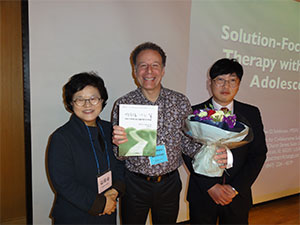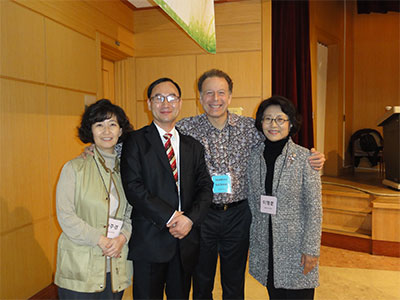
Imagination, Play, And Possibilities:
A COLLABORATIVE STRENGTHS-BASED BRIEF THERAPY APPROACH
Historically, children presenting with emotional and behavioral difficulties have been treated in an individual play therapy context in which the therapist served as the main healing agent and privileged expert. Parents are either peripherally involved and occasionally seen by the same therapist or seen separately by another therapist. Treatment tends to be a long-term endeavor. Many play therapists argue that the child’s family environment may be quite toxic and their therapeutic relationship with the child can be curative without direct parental or other family members’ participation in the therapy sessions. Family therapy purists, on the other hand, contend that by simply changing problem-maintaining family interactions and beliefs, the child’s symptoms can be rapidly stabilized. What is clear, however, is that both clinical approaches have their strengths and limitations and when combined, can offer the child and his/her family a much more comprehensive and effective treatment experience.
In this “hands-on,” practice-oriented workshop, participants will learn a flexible and client outcome-informed Collaborative Strengths-Based Brief Therapy approach that capitalizes on the strengths and resources of the child, his/her family members, key members from his/her social network, and involved helping professionals from larger systems to rapidly resolve their presenting problems. Several highly effective family play and art therapy experiments will be presented. A live family therapy consultation will be provided.
As a result of attending this workshop, participants will learn the following:
- Effective engagement strategies with children
- Therapeutic questions that elicit family members’ expertise, untold family stories, well-formulated treatment goals, and co-create compelling future realities
- The Blueprint for Change Plan: A client outcome-informed roadmap to possibility land
- Empirically-validated parent management tools and strategies
- Rewriting Ferocious Temper and oppressive DSM-V disorder tales: Externalizing conversations that liberate children and their families from the clutches of their problems
- Several family play and art therapy experiments that tap family members’ inventiveness and imagination powers
- Use of the child’s friends in treatment
- Co-constructing change: Facilitating transformative and solution-generating conversations with involved helpers from larger systems
- Trouble-shooting guidelines for working with challenging and complex child cases presenting with multiple problems
- The Celebration Party: Honoring families victories over their oppressive problems
The workshop format will combine information-rich didactic presentation, videotape examples of major therapy strategies and techniques, and a live family therapy case consultation.

